OnePlus 7T Pro vs Samsung Galaxy S10 Plus
Is the 7T Pro a real flagship killer?
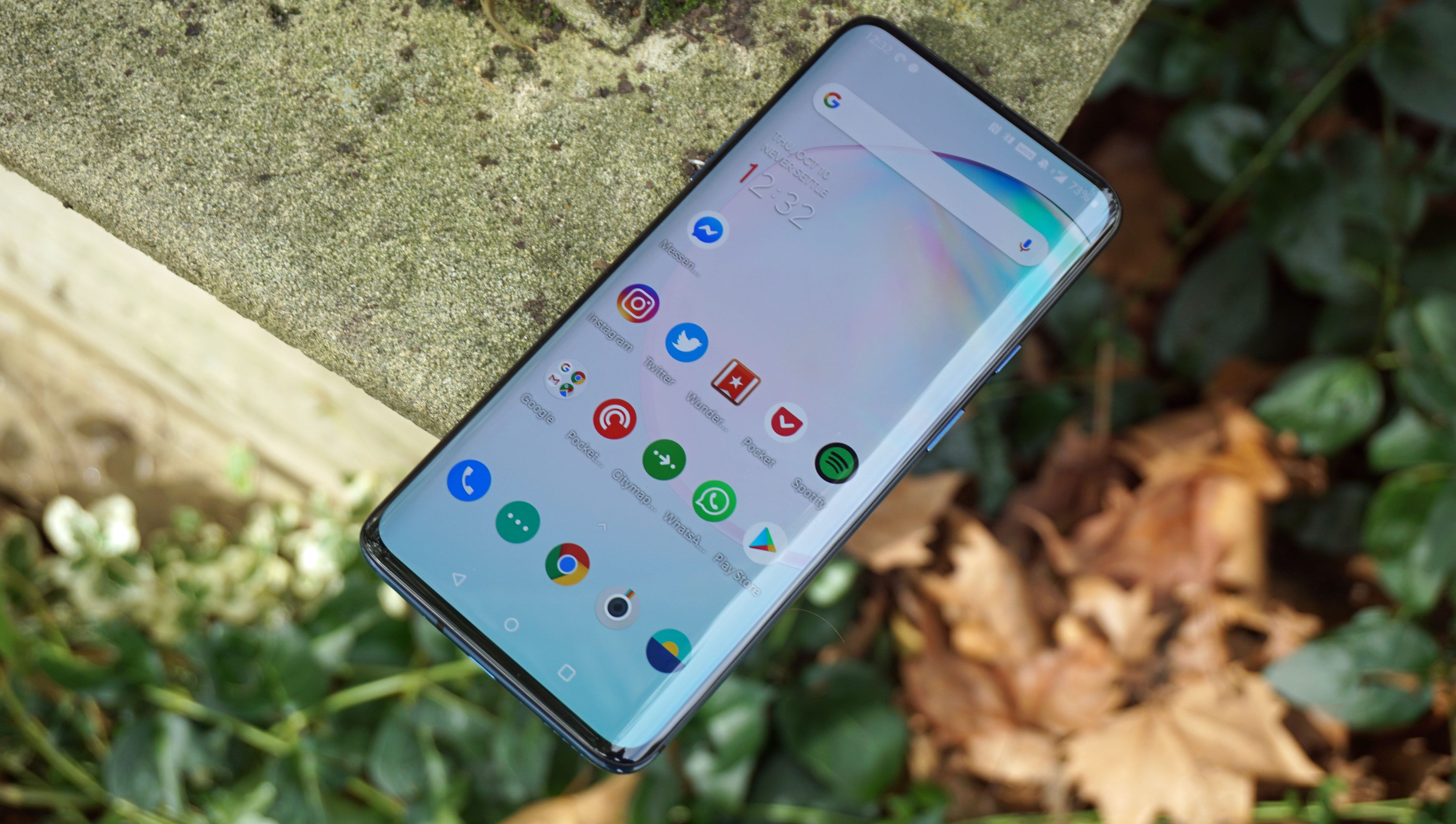
2019 has been the first year OnePlus has truly made phones that compete with the best flagships around, first with the OnePlus 7 Pro, and now with the OnePlus 7T Pro.
It’s not a huge upgrade on the 7 Pro but it’s an upgrade nonetheless, making it the highest-end phone OnePlus has to offer, and its clearest competitor to the Samsung Galaxy S10 Plus.
Samsung’s phone is somewhat older, launching towards the start of 2019, but it remains one of the most accomplished Android flagships around and tops our best phones list, so does the OnePlus 7T Pro have what it takes to compete? Read on to get a clearer idea.
OnePlus 7T Pro vs Samsung Galaxy S10 Plus display
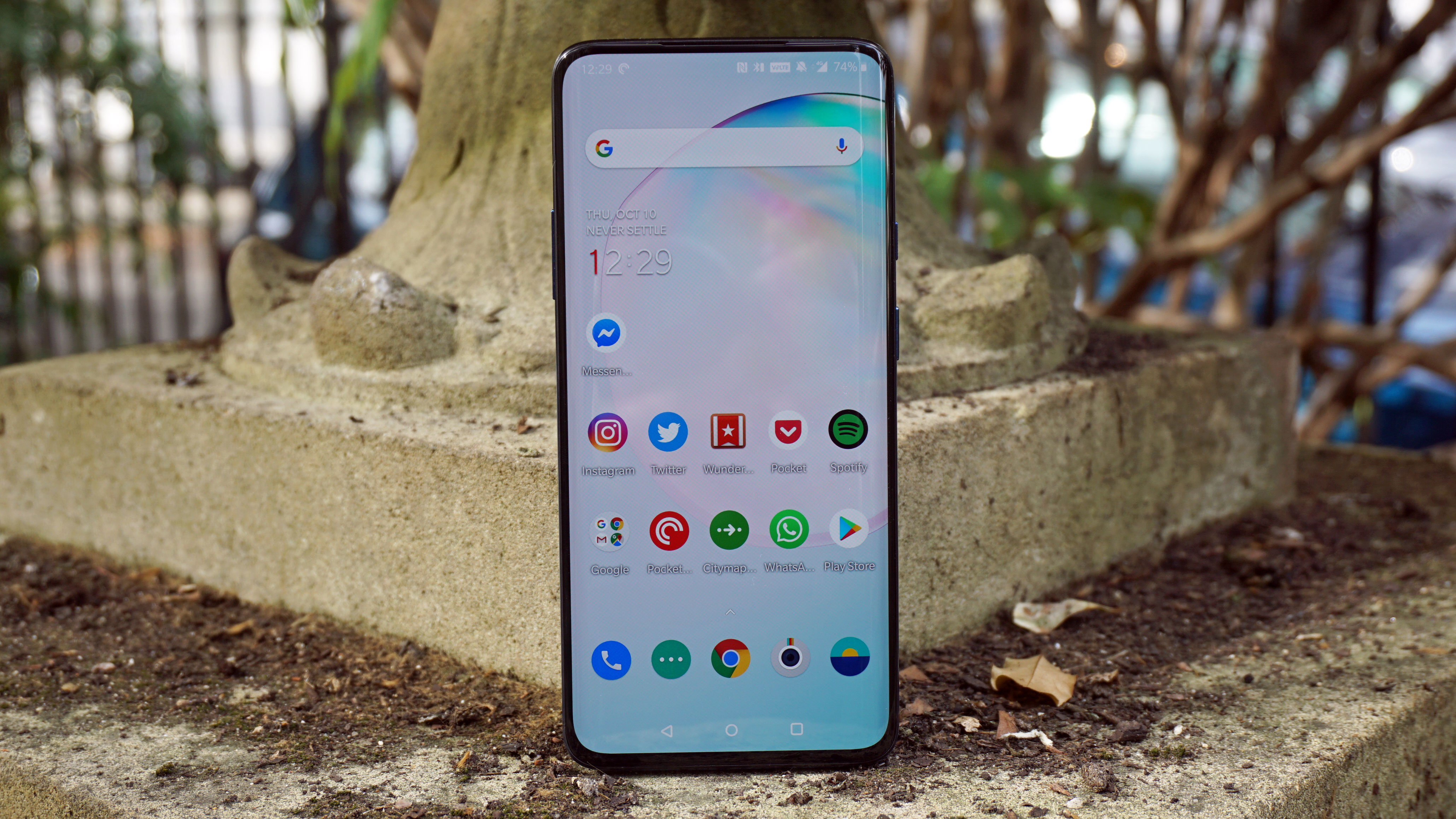
The OnePlus 7T Pro has a curved 6.67-inch 1440 x 3120 screen with 516 pixels per inch and an aspect ratio of 19.5:9. It uses Fluid AMOLED, supports HDR10+, and has a 90Hz refresh rate.
The Samsung Galaxy S10 Plus on the other hand has a curved 6.4-inch 1440 x 3040 screen with 522 pixels per inch and an aspect ratio of 19:9. This phone uses Dynamic AMOLED and also supports HDR10+, but has just a 60Hz refresh rate.
That refresh rate is one of the main differences between the two phones. It means that animations and interactions with the OnePlus 7T Pro should feel slightly smoother at the cost of a tiny amount of battery life (though the refresh rate can be switched to 60Hz if you’d prefer).
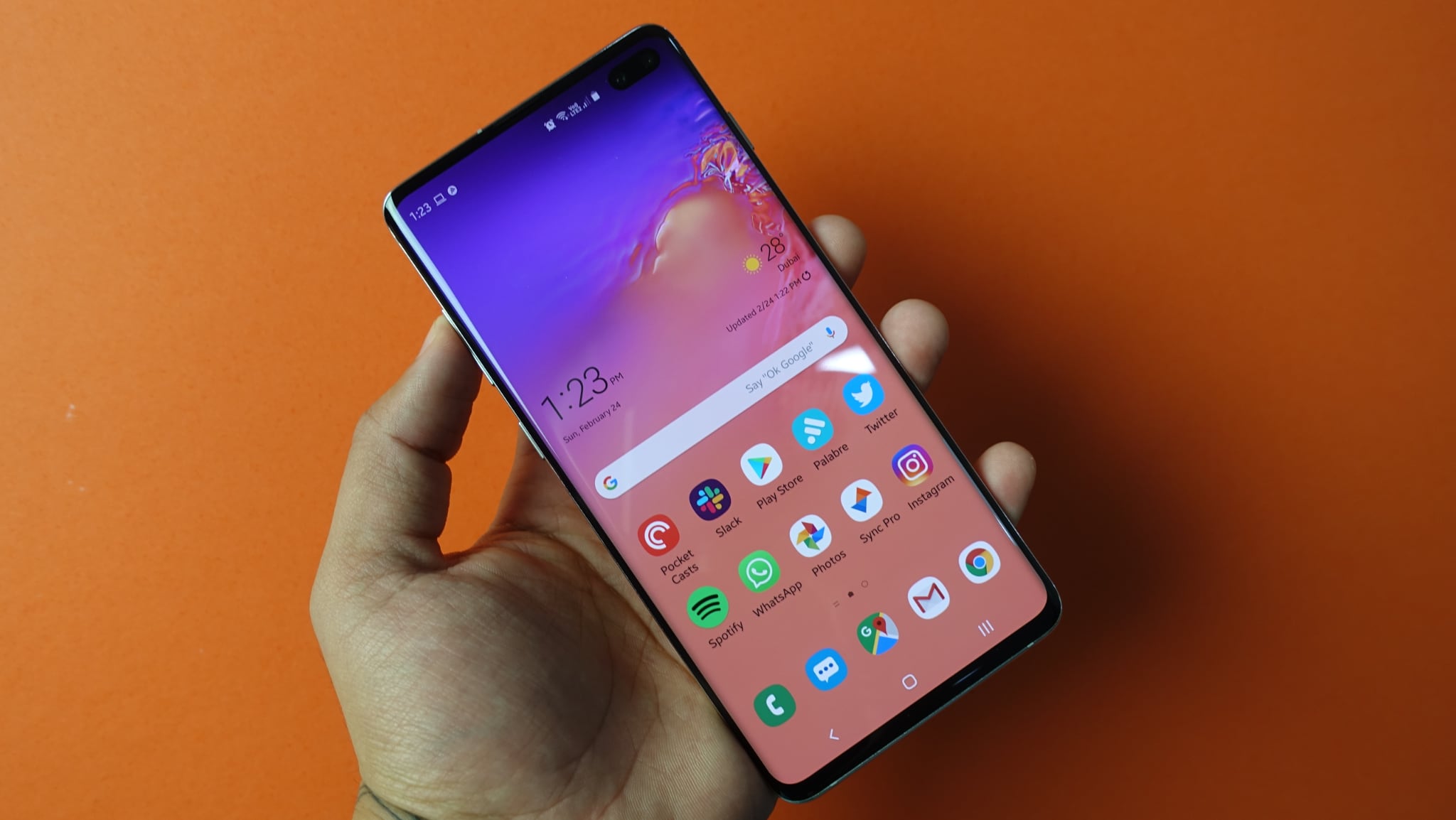
In most other ways these two phones have similar screens, though the OnePlus 7T Pro has a slightly larger one.
Get daily insight, inspiration and deals in your inbox
Sign up for breaking news, reviews, opinion, top tech deals, and more.
Samsung’s meanwhile might look slightly better – we won’t be able to say for sure until we’ve put the OnePlus 7T Pro through a full review, but Samsung’s flagship screens are usually among the very best for visual quality and the Galaxy S10 Plus is no exception.
OnePlus 7T Pro vs Samsung Galaxy S10 Plus design
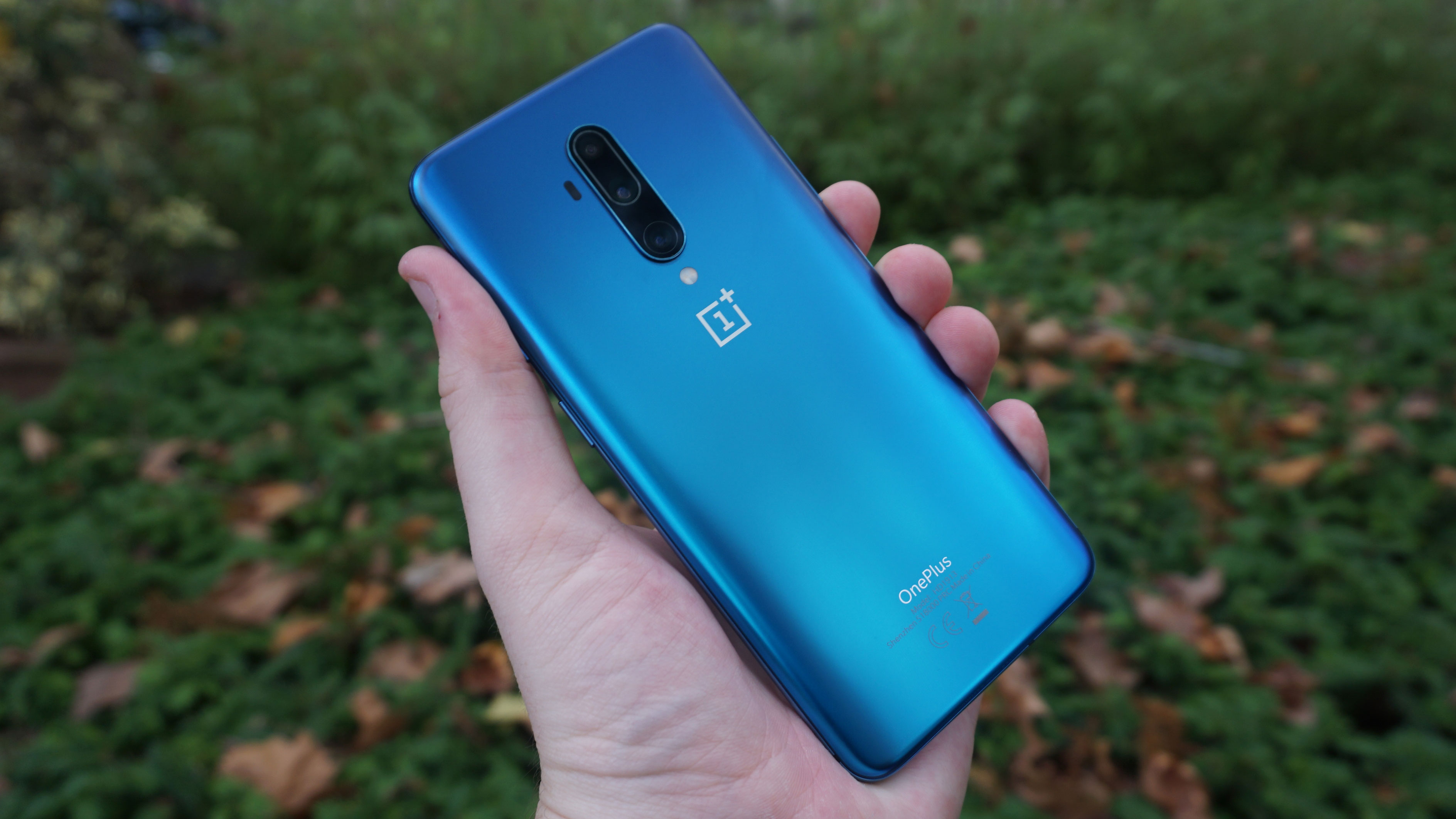
Both the OnePlus 7T Pro and Samsung Galaxy S10 Plus have curved screens, metal frames and glass backs, so there’s a lot of similarity in their designs.
There are some big differences too though. For one thing, the OnePlus 7T Pro has an all-screen front, achieved by opting for a pop-up selfie camera (more on which below). The Samsung Galaxy S10 Plus on the other hand has a punch-hole for the camera in the top right corner of the display.
Samsung’s phone also has a different arrangement of cameras on the back, with the lenses laid out horizontally, while on the OnePlus 7T Pro they’re arranged vertically.
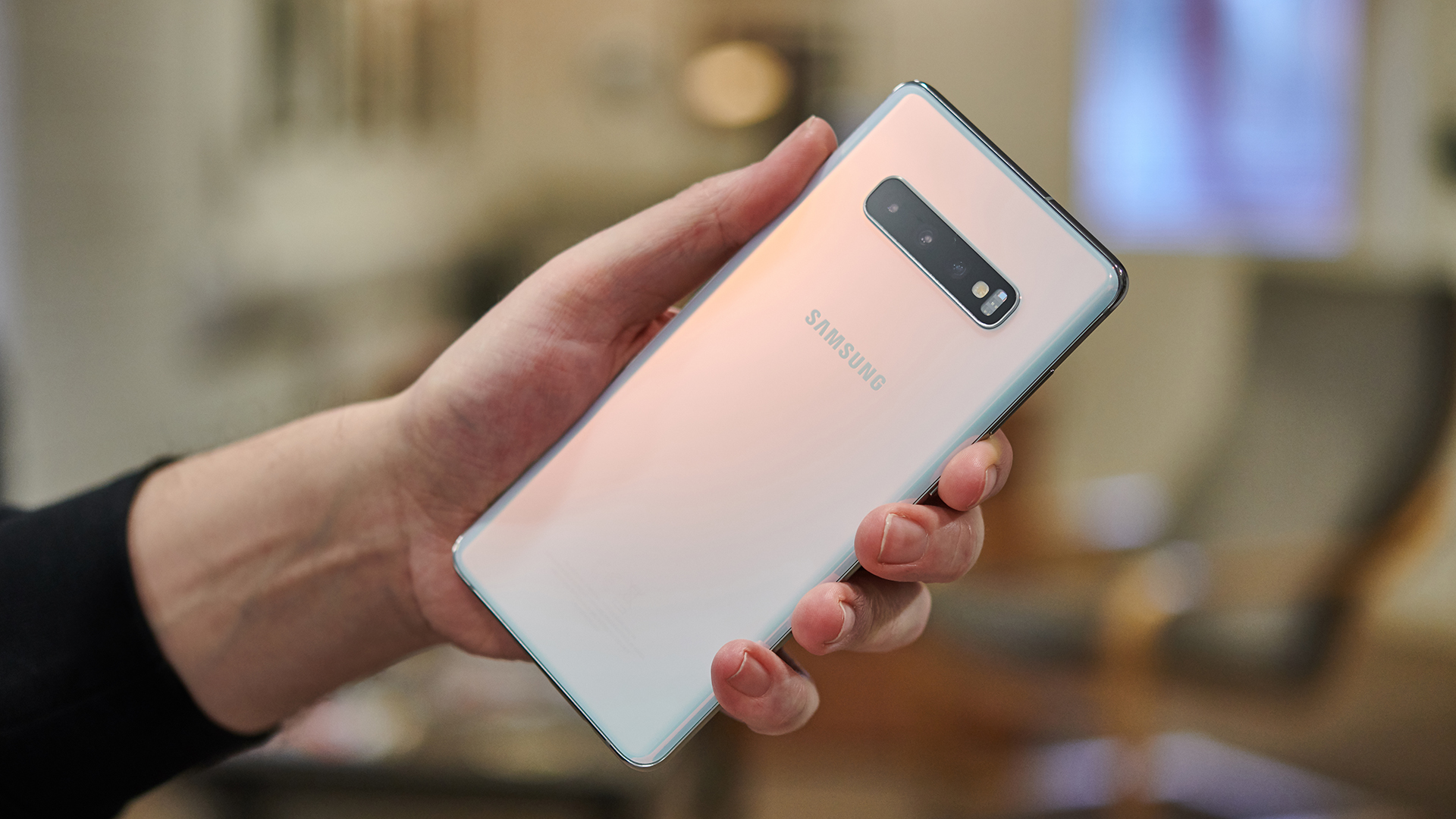
Most of the other differences are smaller. For example, the OnePlus 7T Pro comes in at 162.6 x 75.9 x 8.8mm and 206g, while the Galaxy S10 Plus is a smaller and lighter 157.6 x 74.1 x 7.8mm and 175g.
The Samsung Galaxy S10 Plus also comes in a wide range of colors, while the OnePlus 7T Pro just comes in Haze Blue.
Finally, it’s worth noting that the Samsung Galaxy S10 Plus has an official water resistance rating, which the OnePlus 7T Pro doesn’t.
OnePlus 7T Pro vs Samsung Galaxy S10 Plus camera
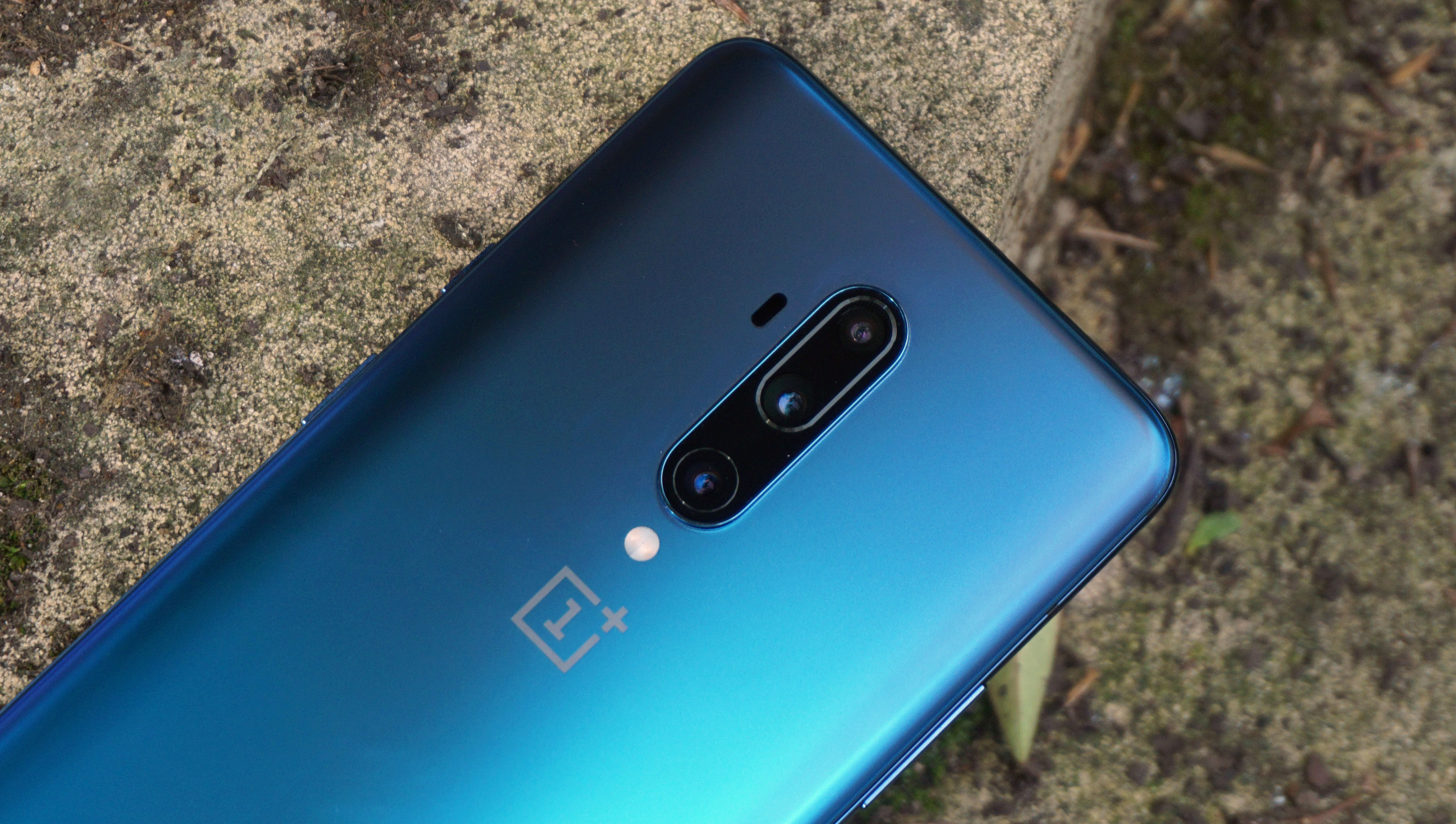
Both of these phones have triple-lens rear cameras, with the OnePlus 7T Pro packing a 48MP f/1.6 main lens, an 8MP f/2.4 telephoto lens (with 3x optical zoom), and a 16MP f/2.2 ultra-wide lens with a 117-degree field of view. The main and telephoto lenses also have optical image stabilization (OIS).
The Samsung Galaxy S10 Plus on the other hand has a 12MP main lens, which can switch between apertures of f/1.5 and f/2.4, along with a 12MP f/2.4 telephoto lens (with 2x optical zoom), and a 16MP f/2.2 ultra-wide lens with a 123-degree field of view. The main and telephoto lenses here also have OIS.
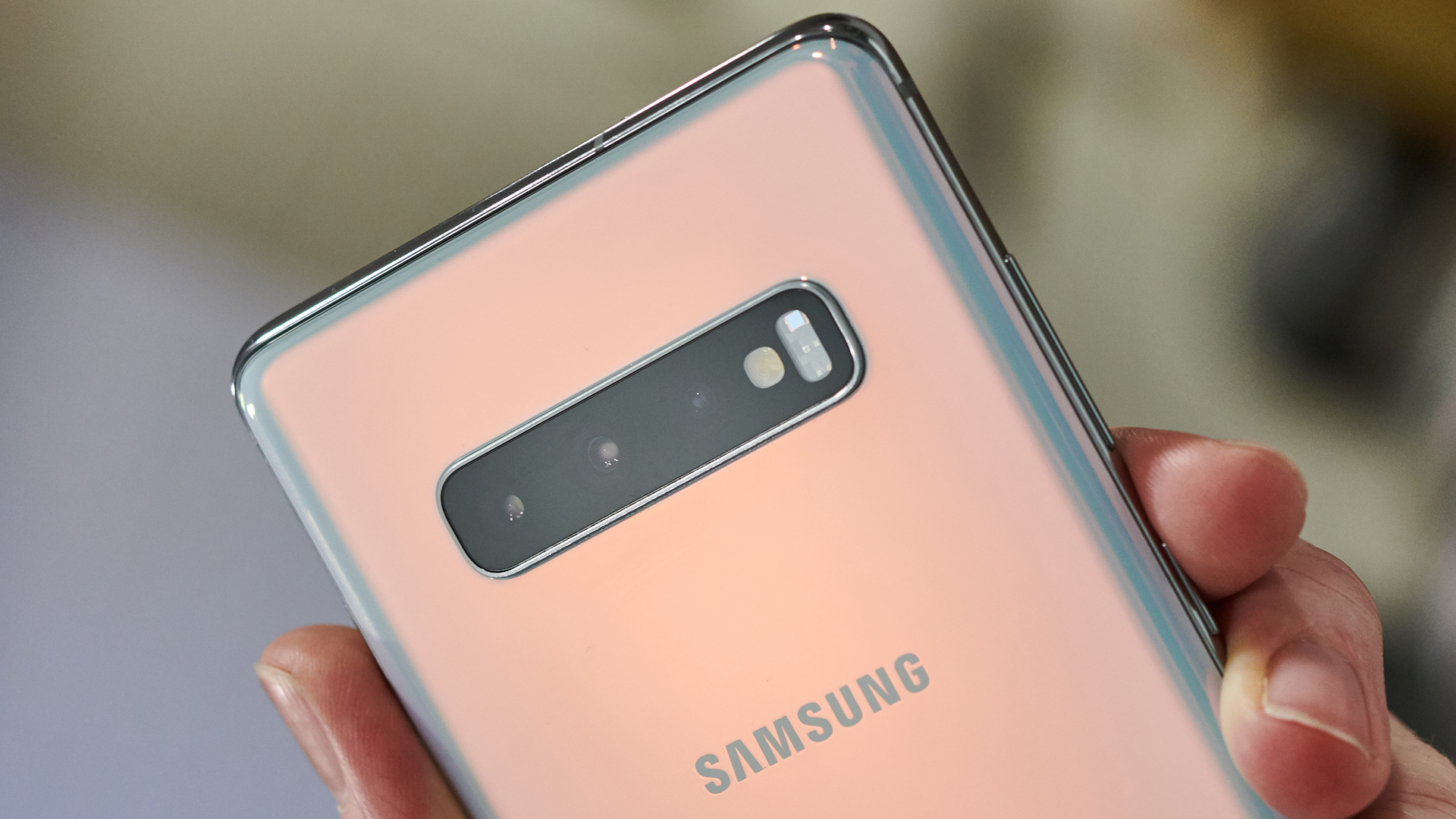
So megapixels aside the two phones have similar setups, albeit with the OnePlus 7T Pro offering greater optical zoom while the S10 Plus can use a wider field of view. Video skills are also similar on paper – both can shoot in up to 4K quality at up to 60fps, and in slow-motion 720p video at up to 960fps, or 1080p video at 240fps.
Bigger differences can be found on the front-facing cameras, as while the OnePlus 7T Pro has just a single-lens 16MP f/2.0 one, the Samsung Galaxy S10 Plus has both a 10MP f/1.9 main lens and an 8MP f/2.2 depth sensor. On paper Samsung’s setup sounds more impressive, but in our review we weren’t convinced by the need for two lenses.
OnePlus 7T Pro vs Samsung Galaxy S10 Plus specs and features
The OnePlus 7T Pro and Samsung Galaxy S10 Plus are both flagship phones, so the specs impress. The OnePlus 7T Pro has a top-end Snapdragon 855 Plus chipset along with 8GB of RAM and 256GB of storage (but no microSD card slot).
The Samsung Galaxy S10 Plus meanwhile has either a Snapdragon 855 chipset (in the US) or an Exynos 9820 chipset (in most other places). These are both high-end, but not quite as new or cutting-edge as the 7T Pro’s.
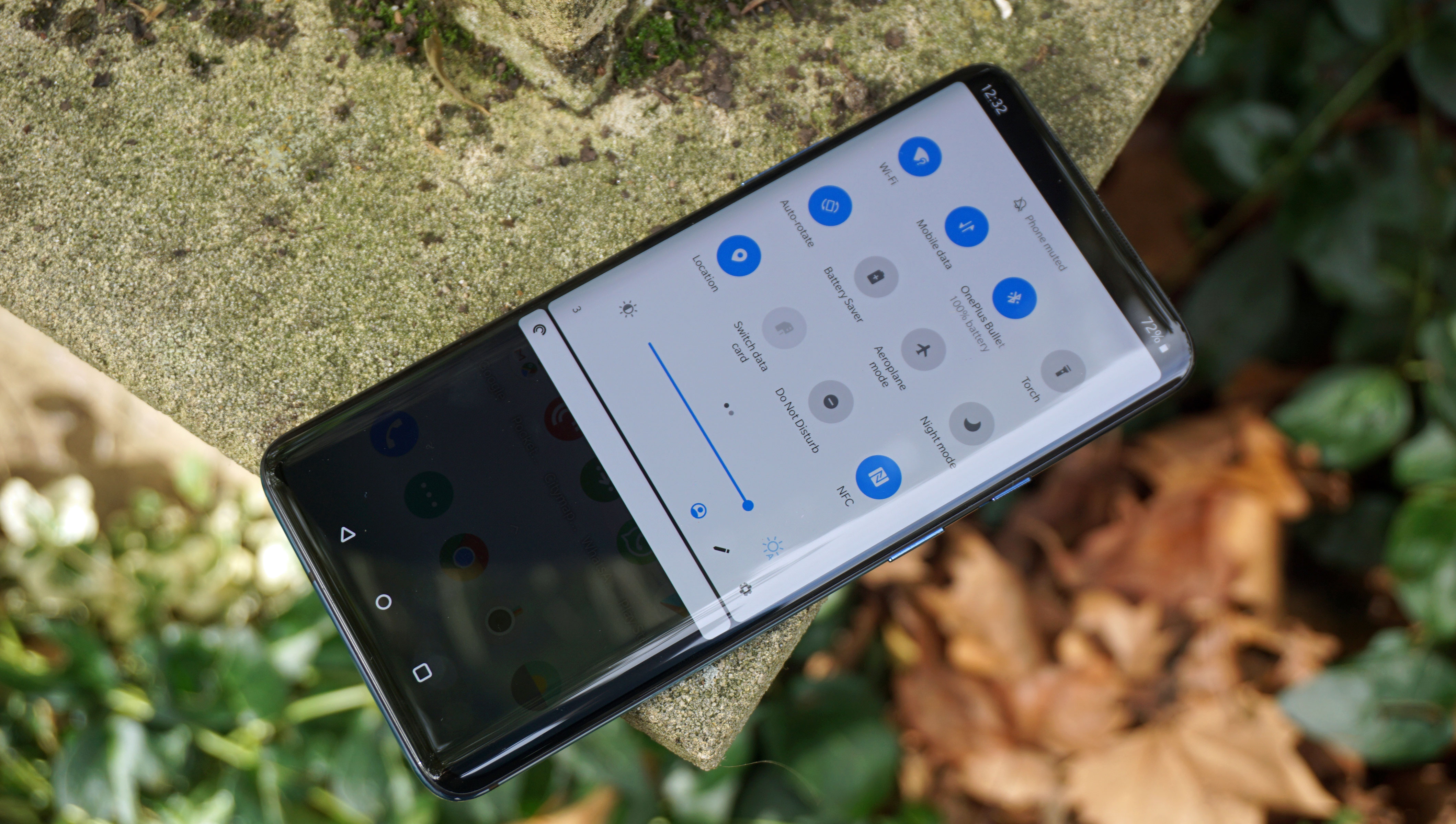
The Galaxy S10 Plus additionally has either 8GB or 12GB of RAM, and a choice of 128GB, 512GB or 1TB of storage, along with a microSD card slot. So the Samsung Galaxy S10 Plus wins on RAM and storage but loses in terms of processing power.
As for features, both phones have an in-screen fingerprint scanner and stereo speakers. But the OnePlus 7T Pro runs Android 10 while the Galaxy S10 Plus is still on Android 9 – it will be getting updated though.
OnePlus 7T Pro vs Samsung Galaxy S10 Plus battery
The OnePlus 7T Pro has a 4,085mAh battery, while the Samsung Galaxy S10 Plus has a 4,100mAh one. So they’re similarly sized.
The OnePlus 7T Pro should charge faster though – it uses ‘Warp Charge 30T’ technology, allowing it to charge even faster than the 30W OnePlus 7 Pro, and certainly faster than the 15W Samsung Galaxy S10 Plus.
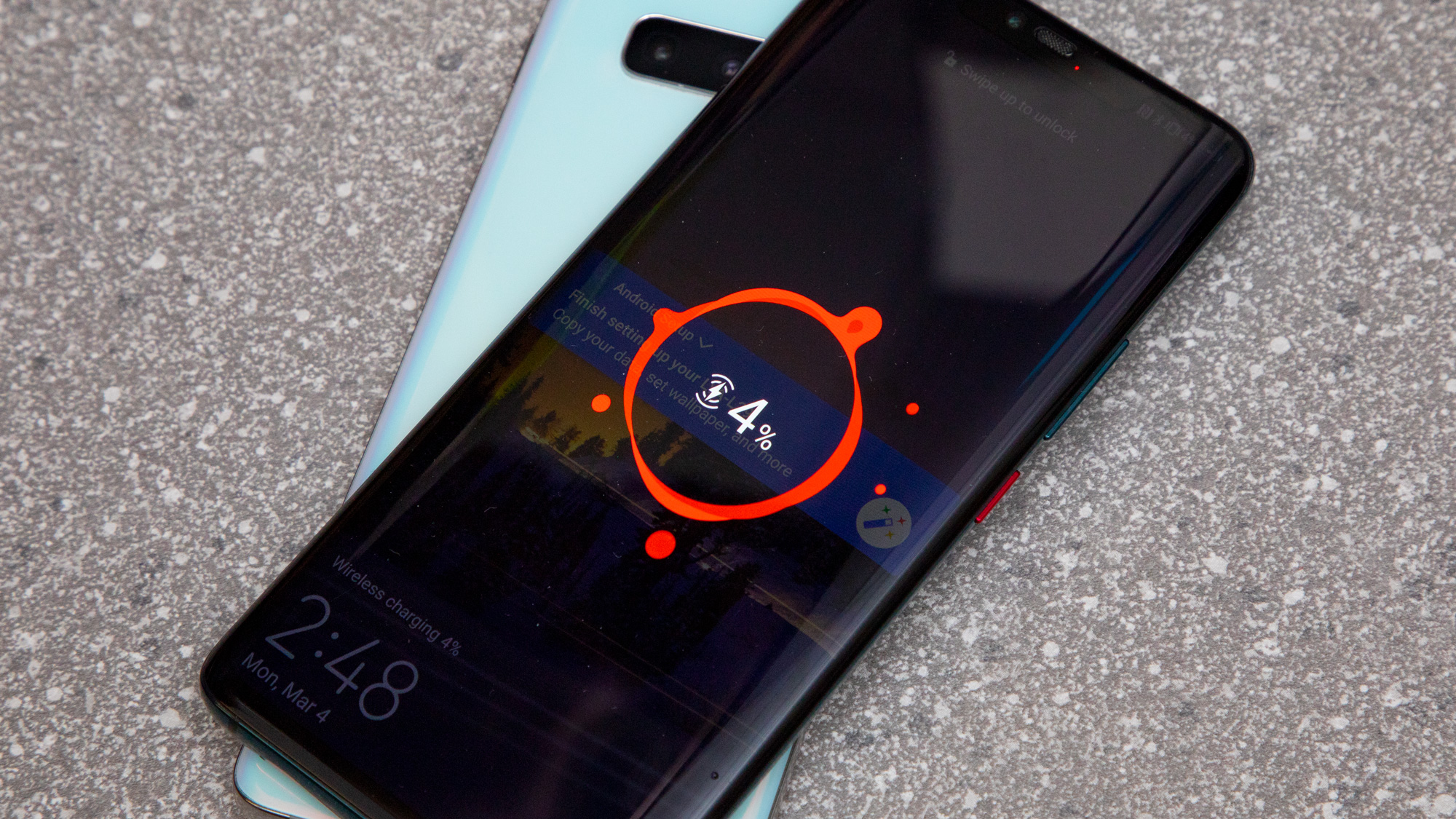
However, the Samsung Galaxy S10 Plus supports fast wireless charging and has a Wireless PowerShare feature, which lets you use the phone as a charging pad to juice up other devices. The OnePlus 7T Pro on the other hand has no wireless charging features.
So on paper there are pros and cons to both here. In practice we found that the Galaxy S10 Plus had more than all-day life, but not by much. We’ll let you know how the OnePlus 7T Pro performs once we’ve put it through a full review, but the OnePlus 7 Pro – which is likely to be similar here – had similar longevity to the S10 Plus in our tests.
OnePlus 7T Pro vs Samsung Galaxy S10 Plus price and availability
The Samsung Galaxy S10 Plus is of course out now. It costs $999 / £899 / AU$1,499 for a version with 128GB of storage, $1,249 / £1,099 / AU$1,849 for 512GB, or $1,599 / £1,399 / AU$2,399 for 1TB (along with 12GB rather than 8GB of RAM). However, you can often find it heavily reduced thanks to Samsung Galaxy S10 Plus deals – for example at the time of writing some UK stores have the base model for £699.
The OnePlus 7T Pro is hitting UK stores on October 17 and will cost £699 (around $865 / AU$1,300, but currently there's no availability in those regions). So that’s lower than a full price Galaxy S10 Plus, but not necessarily much less than the S10 Plus can sometimes be found for in sales.
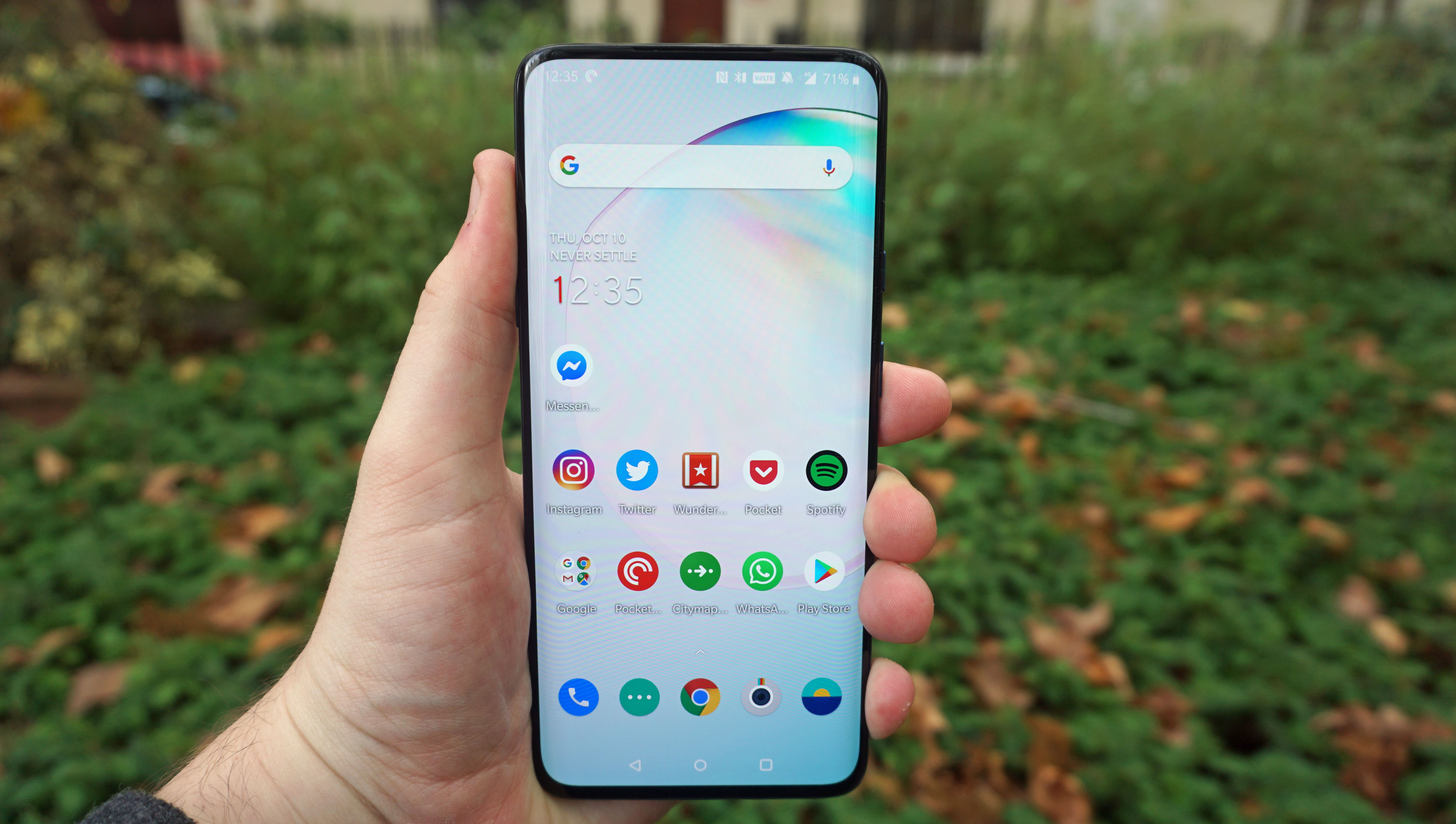
Takeaway
While these are both high-end phones there are some clear differences. With the OnePlus 7T Pro you get an all-screen design, a newer chipset, a higher refresh rate and faster charging, while the Galaxy S10 Plus gives you potentially more storage and RAM, an extra front-facing camera, wireless charging and a water resistance rating.
The S10 Plus is also more expensive – but not always by a huge amount, so your decision as to which phone to buy is likely to come down to which assortment of specs and features most appeals. We would always recommend reading our in-depth reviews first though – one of which will be coming soon for the OnePlus 7T Pro.
- Read our full OnePlus 7T review
James is a freelance phones, tablets and wearables writer and sub-editor at TechRadar. He has a love for everything ‘smart’, from watches to lights, and can often be found arguing with AI assistants or drowning in the latest apps. James also contributes to 3G.co.uk, 4G.co.uk and 5G.co.uk and has written for T3, Digital Camera World, Clarity Media and others, with work on the web, in print and on TV.